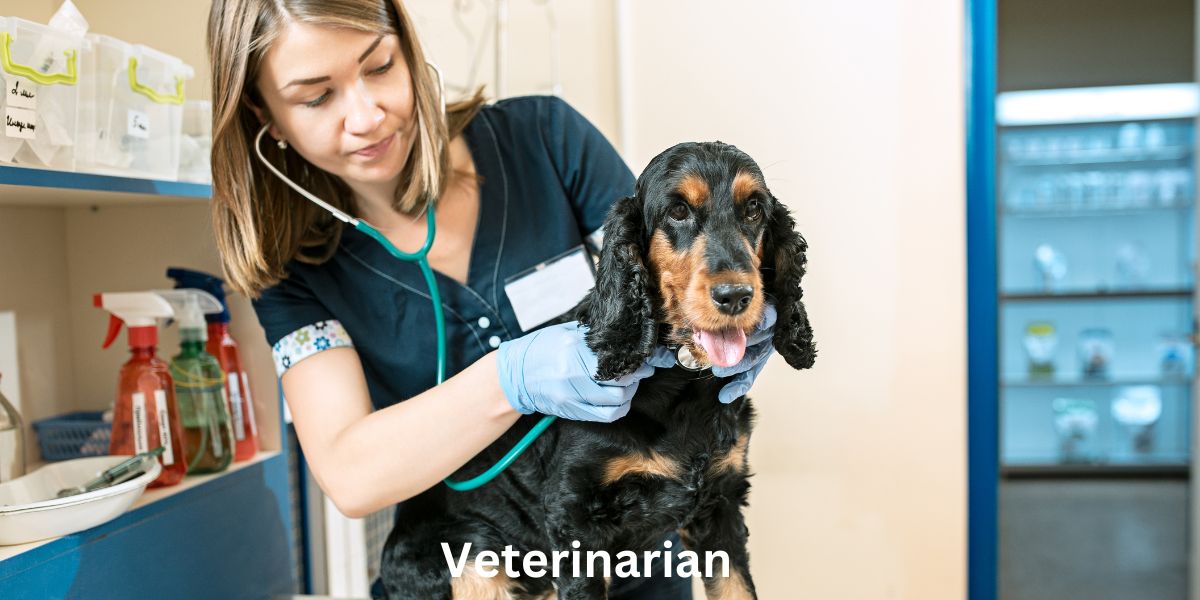Every aspiring veterinarian starts with one thing in common: a deep love for animals. But passion alone isn’t enough to transform that love into a thriving career. The education needed to be a veterinarian is rigorous, multifaceted, and designed to prepare you for the unique challenges of animal healthcare. If you’ve ever dreamed of diagnosing illnesses, saving lives, or improving the well-being of animals, here’s everything you need to know to turn that dream into reality.
Why Veterinary Medicine Demands Specialized Education
Veterinary medicine is as demanding as it is rewarding. Animals can’t tell you what’s wrong, making your expertise critical in uncovering the root cause of their discomfort. Your role spans science, problem-solving, and even emotional support for pet owners. To master these responsibilities, a strong educational foundation is non-negotiable.
However, many underestimate the level of dedication required. It’s not just about learning basic biology or caring for pets—it’s about acquiring the knowledge to address diverse medical conditions in animals ranging from hamsters to horses. Without the right training, your ability to deliver compassionate, competent care will be severely limited.
What Education Is Needed to Be a Veterinarian?
Becoming a veterinarian requires completing several key educational milestones. Here’s a breakdown of the essential steps:
1. Bachelor’s Degree: Building the Foundation
Before applying to veterinary school, you’ll need a bachelor’s degree, ideally in a science-related field. While pre-veterinary medicine programs are common, majors like biology, animal science, or biochemistry are also excellent choices.
Key courses to prioritize include:
- Biology and Zoology: To understand animal anatomy and physiology.
- Chemistry (General and Organic): For foundational knowledge in biochemistry and pharmacology.
- Physics: Often required by veterinary programs to grasp biomechanics.
- Mathematics: Essential for pharmacological calculations and data analysis.
Pro Tip: Many veterinary schools expect applicants to complete prerequisite coursework like microbiology, genetics, and animal nutrition. Research the admission requirements for your target schools early to avoid surprises.
2. Veterinary College Admission Test (VCAT) or GRE
Most veterinary programs require standardized test scores, either the GRE (Graduate Record Examination) or, in some cases, the VCAT. This step tests your readiness for advanced study in veterinary science, assessing skills in critical thinking, quantitative reasoning, and scientific understanding.
3. Doctor of Veterinary Medicine (DVM) Degree
Once accepted into veterinary school, you’ll embark on an intensive four-year journey to earn your DVM degree. The curriculum is typically divided into two parts:
- Preclinical Years: Focused on classroom-based learning in anatomy, physiology, pathology, pharmacology, and more.
- Clinical Training: Hands-on experience through internships or rotations in surgery, diagnostics, and animal care under the supervision of licensed veterinarians.
Veterinary school also allows you to explore specialties, such as equine medicine, exotic animal care, or public health. The American Veterinary Medical Association (AVMA) accredits programs that meet rigorous standards, so ensure the school you choose is AVMA-approved.
4. Licensure: Passing the NAVLE
Graduating with a DVM isn’t the final step—you must also pass the North American Veterinary Licensing Examination (NAVLE). This exam tests your ability to diagnose and treat animal illnesses and is required in all U.S. states and most Canadian provinces.
5. Optional Specialization or Residency
If you want to focus on a specific area like oncology, orthopedics, or wildlife medicine, a post-graduate residency program is often necessary. These programs typically last 2–4 years and provide advanced training in your chosen specialty.
Navigating Common Challenges in Veterinary Education
High Academic Demands
Veterinary school is known for being academically rigorous. The volume of information can feel overwhelming, from mastering pharmacological formulas to memorizing animal anatomical structures.
How to overcome it: Develop effective study habits early, build peer support networks, and seek out mentorship opportunities.
Cost of Education
Veterinary programs are expensive, with tuition often rivaling that of medical school. Coupled with student loans from undergraduate studies, financial strain is a common hurdle.
How to manage it: Explore scholarships, financial aid, and tuition repayment programs, such as those offered for veterinarians working in underserved areas.
Balancing Work and Study
Many veterinary students juggle part-time work in clinics or research labs alongside their studies to gain experience and offset costs.
Pro Tip: Time management skills are essential. Use tools like planners or digital apps to balance commitments effectively.
Beyond the Classroom: Skills Every Veterinarian Needs
While education is the backbone of your career, soft skills also play a crucial role in your success as a veterinarian. Here are some critical non-academic abilities to develop:
- Empathy: To support pet owners during emotionally charged situations.
- Communication: To explain complex diagnoses and treatment plans clearly.
- Problem-Solving: To make quick decisions in emergencies.
- Physical Stamina: Veterinary work can involve long hours and physical exertion, especially in large animal practices.
Frequently Asked Questions About Veterinary Education
Is veterinary school harder than medical school?
While both paths are challenging, veterinary school is often considered more demanding due to the need to master multiple species’ anatomy and physiology, as opposed to focusing solely on humans.
How long does it take to become a veterinarian?
The entire process typically takes 8–10 years: four years for a bachelor’s degree, four years for veterinary school, and additional time for specialization if desired.
Can I work with animals without becoming a veterinarian?
Absolutely! Careers like veterinary technician, animal behaviorist, or wildlife rehabilitator allow you to work closely with animals without the extensive schooling required for a DVM.
Practical Tips to Succeed on Your Path
- Gain Experience Early: Volunteer at animal shelters, shadow veterinarians, or work as a veterinary assistant to build real-world skills and strengthen your application.
- Network Strategically: Join professional organizations like the AVMA or student veterinary groups to connect with peers and mentors.
- Focus on Well-Being: Burnout is common in veterinary medicine, so prioritize mental health and seek support when needed.
Your Journey Starts with Education—and Passion
The education needed to be a veterinarian may be challenging, but it’s also incredibly rewarding. Every course, clinical rotation, and late-night study session brings you one step closer to a career where you can make a real difference in the lives of animals and their owners.
If you’re ready to pursue this path, start by exploring pre-veterinary programs, researching accredited veterinary schools, and building hands-on experience. The road is long, but for those truly passionate about animal care, it’s a journey worth taking.




